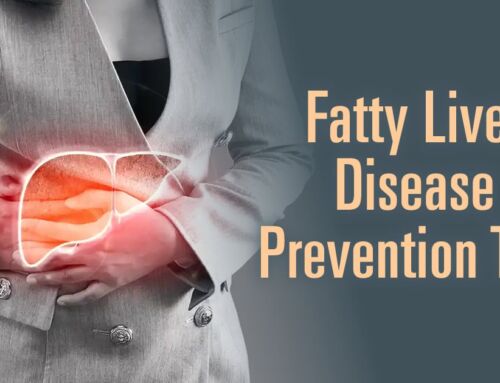A long day after work or a day filled with screaming kids – all you can think about is pouring a glass of wine or popping open a nice cold beer. As you take the first sip of your drink, you think, “It’s all about the small things in life!”
An alcoholic beverage is definitely nice for relaxation and social events. But too much of a good thing can eventually turn into a bad thing.
I’m not saying you need to restrain from all alcohol consumption, but excessively drinking alcohol can have a major impact on your health.
Moderate drinking consists of 1 drink per day for women and up to 2 drinks per day for men.
One standard drink corresponds to:
- 12-ounce bottle of 5% beer
- 5-ounce of 12% wine
- 1.5-ounce of 40% liquor
Alcoholic beverages differ in the percentage of alcohol. This is why it’s important to first understand the definition of a standard drink.
Let’s review how alcohol can affect your body if you drink excessively.
How Alcohol Affects Your Digestive System
Your digestive system starts at your mouth and ends at your anus. And every part of your digestive tract comes into direct contact with alcohol after you consume it.
Alcohol contains carcinogenic compounds which are toxic to your body. The carcinogenic with the highest risk of health problems is one we all know – ethanol. Once ethanol is metabolized in your system it’s broken down into another toxic compound called acetaldehyde.
With these toxic compounds, alcohol can cause inflammation throughout your digestive system and affect your entire digestive tract.
From beginning to end, how alcohol can affect your digestive system:
- Mouth – Alcohol abuse is the second largest risk factor behind smoking cigarettes for oral cancer. Your mouth is the first thing to come in contact with these carcinogenic toxins and repeated consumption can lead to DNA damage to the cells in your mouth.
- Esophagus – Consumption of alcohol is also a major risk for esophageal cancer, especially esophageal squamous cell carcinoma. This risk factor increases depending on the alcoholic beverages content of ethanol.
- Stomach – Although studies show that alcohol consumption alone doesn’t produce peptic ulcers, they can be a serious risk factor. Studies show increased alcohol consumption and cigarette smoke are major contributing factors in developing peptic ulcers.
Alcoholic gastritis is most associated with hard liquors such as gin, whiskey, and vodka. Since alcohol is an irritant it can promote inflammation in the lining of your stomach which can cause gastritis.
Acid reflux is caused by an abnormal relaxation of your lower esophageal sphincter. Excessive consumption of alcohol has been shown to cause a dysfunction in your lower esophageal sphincter allowing stomach contents to back flow into your esophagus.
Gastric cancer has also been strongly associated with excessive amounts of alcohol.
- Intestines – Since alcohol is an irritant it can lead to inflammation of the small intestines and colon. Due to this inflammation and alcohol metabolites and toxins, this can eventually lead to small intestine cancer or colorectal cancer.
Inflammation of the villi in your small intestines from alcohol has been shown to inhibit nutrient absorption. Malabsorption of food promotes nutritional deficiencies in heavy drinkers.
The inflammatory effects of alcohol on your gut barrier can potentially trigger gut issues such as leaky gut syndrome and irritable bowel syndrome.
Since almost 70% of your immune system is found in your gut, having an unhealthy gut can hinder your immune response. Gut health is important to your overall health, and alcohol can have negative effects on your “second brain.”
Your liver is your body’s filtration system. One of the most important jobs your liver has is to filter your blood of toxic substances. Once alcohol and all of its carcinogenic toxins are absorbed through your digestive tract via the stomach or small intestines it heads straight to the liver. Your liver metabolizes 90% of alcohol, breaking it down into the toxic enzyme acetaldehyde. Acetaldehyde can cause inflammatory changes in the liver. Chronic inflammation in the liver from alcohol abuse can lead to the following health problems: If you already have decreased liver function or a chronic liver disease, I urge you to avoid alcohol at all cost. Your liver is a vital organ, and abstaining from alcohol can improve your health and life expectancy. Heavy alcohol consumption is considered to be an important risk factor for different diseases, disability, and mortality. This is why it’s important to drink within or below the recommended guidelines for alcoholic beverages. The following diseases have been linked to heavy drinkers, binge drinking, and even irregular heavy drinking occasions: Not only can alcohol affect you long-term, but short-term consequences of heavy drinking can impair your judgment which can lead to injury either to yourself or others. Reading all of the negative health effects of alcohol on your digestive system, liver, and other diseases probably makes you never want to touch another drink. This information isn’t intended into scaring you about the side effects of alcohol, but its intention is to bring awareness of excessive alcohol intake. Alcohol can be dangerous when you abuse it or drink over the recommended value. Drinking responsibly can help prevent some of these long-term effects of alcohol on your body. You can see how alcohol is strongly linked to cancer throughout your digestive tract. Colon cancer and other cancers of the digestive tract are easily treatable when detected early. With routine screening, your doctor can help diagnose and help treat your cancer faster. If you’re in the San Antonio, TX area and looking for a board certified gastroenterologist request an appointment today or call our office at (210) 615-8308.
Other Health Risks of Alcohol Abuse
Drink Responsibly




